
Cinematography
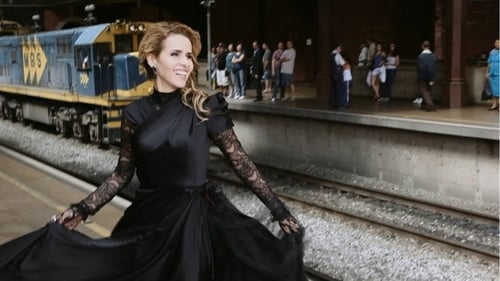
Cinematography
Joana suffers from a double personality and is obsessed with Anna Karenina, the character from Tolstoy's novel. Embodying the myth of Narcissus, Anna K. is the image and resemblance of Joana, stronger and more seductive.

Cinematography
Marcelo is a journalist. Carlos is a former car-thief. Renata is a woman torn apart by two relationships as diverse as her desires. Exu is the ever becoming.
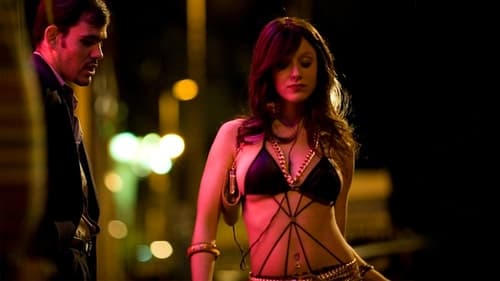
Cinematography
On mythical Augusta Street, in San Paulo (Brazil), a journalist who seeks answers for his angst dives into the world of prostitution and neo-Shamanism rituals.

Camera Operator
Three desperate stories about working life in São Paulo.

Director of Photography
Three desperate stories about working life in São Paulo.

Color Grading
The documentary’s starting point is the discovery and restoration of a rare and unknown photography reel reproduced from a mutoscope film, made in 1901 in London, about Santos Dumont (1873 – 1932). The work approaches historic and artistic aspects from the beginning of Cinema (pre cinema, variety film) and a cinema that appropriates archive material (found footage, recycled films), through interviews, documents, visual metaphors and the articulation of a poetic essay.

Cinematography
The crossing of generations under the influence of military dictatorship and political openness. Documentary highlights the role of the organizers of the March for the Family with God for Freedom in 1964. Based on stories of life under the military dictatorship, stories and reflections of people who had a significant participation in that period, whether for or against the coup.

Director
"Against an adverse sky, Celeste raises her flight. If he went up, nobody knows, nobody saw."

Cinematography
The making of an unfinished film about phobias. Says the director. Behind the screens, he discusses at length (with e.g. Coffin Joe) about the aesthetic boundaries of the project: volunteers under controlled circumstances become immersed in their phobias in order to film the fear on their faces.

Director of Photography

Cinematography

Camera Operator
A marginal version of Brecht’s piece, “Baal”.

Director of Photography
A marginal version of Brecht’s piece, “Baal”.

Director of Photography
Documentary on the life and times of one of the most prominent Brazilian samba composers, Cartola (Angenor de Oliveira).
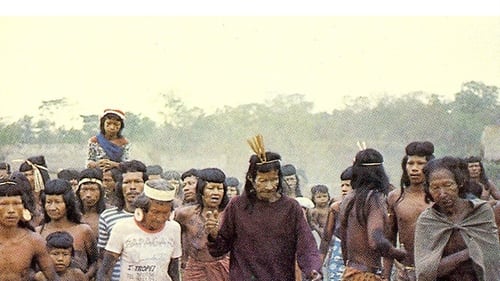
Director of Photography
Carapiru is a member of one of Brazil's remaining indigenous peoples, living in harmony with nature and making wise use of the local flora and fauna. But Carapiru is suddenly forced to fend for himself and flees into the nearby rain forest, building a new life for himself with the help some sympathetic settlers. However, after rebuilding his life Carapiru is uprooted once again, this time by government agents. A expressive visual storytelling in this study of the native peoples of Brazil in the 21st century.

Director of Photography
All the feature is given prestige to by the narration in Caetano Veloso's voice, that also signs one of the segments of the project. São Paulo is the largest city of the Southern Hemisphere, with an incessant dynamics of cultural mixtures, with immigrants of all the world and migrants of all parts of Brazil. The gathering of these peculiarities are seen through the 13 film directors's sensibilities and their segments.
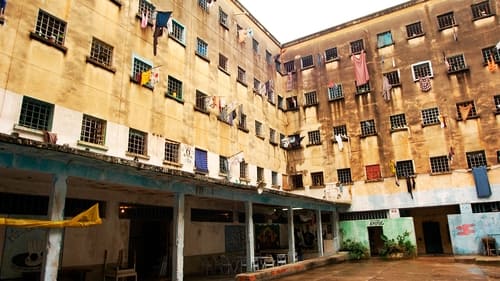
Cinematography
In 2002, the greatest prison in Latin America, Complex Carandiru, was demolished. A couple of months before its implosion, director Paulo Sacramento trained some inmates and together with his crew, they produced many hours of footage, showing daily life in prison.

Director of Photography
"O Corneteiro Lopes" is a story of love and courage. The city of Salvador is under siege by Brazilian troops, however, they lose strength in the course of battles. The Portuguese Luiz Lopes, alongside the Brazilian army, contrary to the orders of General Labatut, changes the fortunes of the Battle of Pirajá.

Director
Last part of the trilogy that approaches puberty in three Brazilian socio economic classes: A, B and C. The youngsters talks freely about their fears and projects, unveiling a broad outlook about the pre-adolescence universe in São Paulo.

Director
Second part of the trilogy that approaches puberty in three Brazilian socio economic classes: A, B and C. The youngsters talks freely about their fears and projects, unveiling a broad outlook about the pre-adolescence universe in São Paulo.

Director of Photography
Rap, drugs and violence. One day in the suburbs of São Paulo.

Director of Photography
The story of Cândida Raposo, an 81-year-old widow who still has a desire for pleasure, or the 'vertigo of living'.

Director of Photography
An ode of love and hatred to the city of São Paulo. Composed of fragments of films, it follows characters in their natural habitat: the streets.

Researcher
Mixing new images to existing São Paulo movies takes, the documentary presents the city from the perspective of five main attributes: transformation, anonymity, crowd, precariousness and dimension.

Director
First part of the trilogy that approaches puberty in three Brazilian socio economic classes: A, B and C. The youngsters talks freely about their fears and projects, unveiling a broad outlook about the pre-adolescence universe in São Paulo.

Director
Mixing new images to existing São Paulo movies takes, the documentary presents the city from the perspective of five main attributes: transformation, anonymity, crowd, precariousness and dimension.

Director
An essay on street art in Sao Paulo during the early 90s.

Director
Documentary shot in 14 different dancing rooms, showing the variety of genres, styles e social groups in the São Paulo city.

Cinematography
Supported by the works of poet/musician Claude Miller, the film portraits a snippet of brazilian reality.

Editor
Supported by the works of poet/musician Claude Miller, the film portraits a snippet of brazilian reality.

Producer
Supported by the works of poet/musician Claude Miller, the film portraits a snippet of brazilian reality.

Director
Supported by the works of poet/musician Claude Miller, the film portraits a snippet of brazilian reality.

Writer
Supported by the works of poet/musician Claude Miller, the film portraits a snippet of brazilian reality.

Director of Photography
Explicit sex comedy divided into two episodes. In "Alô Buça!", A woman discovers that her vagina speaks and has her own opinions and desires but puts her in embarrassing situations; In "The Unicorn," an impotent man sees his sexual capacity doubling after a penis is born in his head and this leads women to madness.

Director of Photography
A discussion on Brazilian cinema, focusing on São Paulo's Boca do Lixo production pole.

Director of Photography
...discussion of leftist attitudes towards democracy and popular movements; in parallel, a discussion about the role of militant cinema in relation to real political struggles.
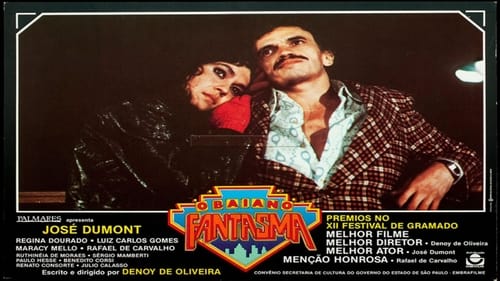
Director of Photography
Lambusca, a man from the State of Paraíba, Brazil, goes to São Paulo, looking for a job. But he ends up working for a group of fishy loan sharks, collecting money. In one of his visits, the debtor dies. The police then starts chasing him, believing he had murdered the man.

Director of Photography

Director of Photography
São Paulo, late 30's. Alberto (Paulo César Pereio) is an intellectual and professor who announces to his friend and pupil Polidoro (Nuno Leal Maia) he won a scholarship to study in Paris. In Paris Polidoro receives a letter in which Alberto announces that he married Helena (Ana Maria Nascimento e Silva). Polidoro returns to Brazil in 1945, when there was a strong political agitation against the New State. Alberto invites Polidoro to spend a few days at his home in Campos do Jordão. After reaching the site he is told by Helena that Alberto was forced to travel urgently. She insists he should stay there until the return of her husband and, while waiting, she seduces him. Then, after several days of intense passion, she orders Polidoro to go away and never see her again.

Director of Photography
The path of Paraguayan immigrants who drive to Asuncion and then arrive in São Paulo. They are rural workers, musicians, vendors and underemployed people. Two parallel worlds: the Guarani culture and the Brazilian adventure in São Paulo juxtaposed with Paraguayan songs and the Guarani language, spoken by the main characters.

Screenplay
The path of Paraguayan immigrants who drive to Asuncion and then arrive in São Paulo. They are rural workers, musicians, vendors and underemployed people. Two parallel worlds: the Guarani culture and the Brazilian adventure in São Paulo juxtaposed with Paraguayan songs and the Guarani language, spoken by the main characters.

Director
The path of Paraguayan immigrants who drive to Asuncion and then arrive in São Paulo. They are rural workers, musicians, vendors and underemployed people. Two parallel worlds: the Guarani culture and the Brazilian adventure in São Paulo juxtaposed with Paraguayan songs and the Guarani language, spoken by the main characters.

Additional Photography
Documentary about the strikes that took place in São Bernardo do Campo, in the State of São Paulo, Brazil, circa 1979/1980. That moment was of utmost importance, since it revealed a Union leader, Luís Inácio "Lula" da Silva, who would later become President of Brazil. It was also the moment when PT, the Workers' Party, became a relevant political force in Brazil.

Cinematography
Deraldo, a popular poet from Northeast Brazil, arrives in the capital of São Paulo, making a living only from his poetry and pamphlets. All is well until he is mistaken for a multinational worker who killed the boss at a party where he received the title of symbolic worker.

Additional Photography
Short documentary on workers' movement in Brazil in the 1970s, such as the Movement Against Famine, and the policial repression against demonstrators and activists.

Camera Operator
A documentary about the 1979 workers strike.

Director of Photography
A documentary about the 1979 workers strike.

Camera Operator

Director of Photography

Cinematography
São Paulo, May 1978. Three slates compete for the leadership of the Metalworkers' Union of São Paulo, the largest in Latin America, with 300,000 associate workers, and presided over by a platoon since the military coup of 1964. In the midst of the Union electoral campaign, the first workers' strikes that would change the country began. Braços Cruzados, Máquinas Paradas reveals, in an engaging narrative, the Brazilian trade union structure of fascist inspiration.

Camera Operator
A portrait of Santos Port, its geography, workers and the life that surrounds it, including the poor, prostitutes and the night life inhabitants.

Director of Photography
A portrait of Santos Port, its geography, workers and the life that surrounds it, including the poor, prostitutes and the night life inhabitants.

Writer
A portrait of Santos Port, its geography, workers and the life that surrounds it, including the poor, prostitutes and the night life inhabitants.

Director
A portrait of Santos Port, its geography, workers and the life that surrounds it, including the poor, prostitutes and the night life inhabitants.

Producer
The faces, the gestures and speech of beggars, madmen and revelers passing through the streets of São Paulo. The sounds and images are illustrated with Frantz Fanon extracts.

Editor
The faces, the gestures and speech of beggars, madmen and revelers passing through the streets of São Paulo. The sounds and images are illustrated with Frantz Fanon extracts.

Cinematography
The faces, the gestures and speech of beggars, madmen and revelers passing through the streets of São Paulo. The sounds and images are illustrated with Frantz Fanon extracts.

Writer
The faces, the gestures and speech of beggars, madmen and revelers passing through the streets of São Paulo. The sounds and images are illustrated with Frantz Fanon extracts.

Director
The faces, the gestures and speech of beggars, madmen and revelers passing through the streets of São Paulo. The sounds and images are illustrated with Frantz Fanon extracts.

Director
An interview about education and working conditions among Brazilian peasants in the 70s.

Screenplay

Director of Photography

Writer
Arnulfo Silva, a former abandoned child, retells his childhood difficulties living on the streets.

Director
Arnulfo Silva, a former abandoned child, retells his childhood difficulties living on the streets.

Director

Director
Deutrudes Carlos da Rocha, a 24-year-old Brazilian, black, illiterate, is a car washer and lives in São Paulo. Through his testimony and also holding the camera, he brings us closer to his experience and vision of the world.

Director
The street carnival in the city of São Paulo: the scenary, the samba schools, the blocks, the passers-by, the trance. Film made from black and white photographs, with classic samba songs in the soundtrack.

Director of Photography
Documentary wich tries to capture the iconoclastic spirit of the 1922 Week of Modern Art, to tell about the beginning of cinema made in the city of São Paulo.

Editor
This documentary takes us on a ride through Marginal Tietê, an important avenue in São Paulo, Brazil, then recently opened to the public. The places it crosses and the people living nearby force the viewer to think about the core of this big city.

Cinematography
This documentary takes us on a ride through Marginal Tietê, an important avenue in São Paulo, Brazil, then recently opened to the public. The places it crosses and the people living nearby force the viewer to think about the core of this big city.

Producer
This documentary takes us on a ride through Marginal Tietê, an important avenue in São Paulo, Brazil, then recently opened to the public. The places it crosses and the people living nearby force the viewer to think about the core of this big city.

Writer
This documentary takes us on a ride through Marginal Tietê, an important avenue in São Paulo, Brazil, then recently opened to the public. The places it crosses and the people living nearby force the viewer to think about the core of this big city.

Director
This documentary takes us on a ride through Marginal Tietê, an important avenue in São Paulo, Brazil, then recently opened to the public. The places it crosses and the people living nearby force the viewer to think about the core of this big city.

Director
The experiences of the vocational education at Oswaldo Aranha Highschool, São Paulo, based on a ideia of creating a social microcosm to put the children in a direct touch with their Country reality.

Director of Photography
Love, sex and death get mixed in a homosexual love story between two desperate boys in a big city.

Editor
A young man returns to the country and find surprises,

Director of Photography
A young man returns to the country and find surprises,

Producer
A young man returns to the country and find surprises,

Writer
A young man returns to the country and find surprises,

Director
A young man returns to the country and find surprises,
























































